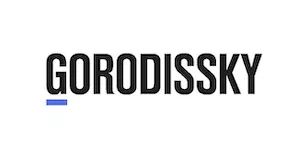This article was first published by the International Law Office, a premium online legal update service for major companies and law firms worldwide.
Introduction
Keywords play an important role in e-marketing. After typing a specific product name, company name or brand in a search engine, potential customers and users may view specific offers and data, including ads.
Further, the list of offers may represent certain keywords selected by an advertiser. Unsurprisingly, the selection and reproduction of designations as keywords can trigger various trademark use concerns that inevitably lead to enforcement issues.
Unauthorised trademark use – unfair competition versus infringement
In Russia, advertising and competition-related legal requirements are enforced by the Federal Anti-monopoly Service (FAS). In particular, FAS may prosecute various forms of unfair advertising and competition, including business activities that create market confusion (eg, the unauthorised or illegal use of competitors' trademarks). To establish unfair advertising or competition, FAS requires the submission of appropriate evidence, including the demonstration of a competitive relationship between the conflicting parties.
At the same time, local commercial courts consider and hear trademark disputes involving advertising and various media. Importantly, the standard of proof in a typical trademark infringement matter focuses on the plaintiff's (ie, the trademark owner's or exclusive licensee's) need to establish that the defendant (ie, the alleged infringer) has used an identical or confusingly similar designation (mark) in connection with the same (or similar) goods or services for which the trademark is protected (registered) in Russia.
Under Section 2(5) of Article 1484 of the Civil Code, trademark owners have an exclusive right to use a trademark for the individualisation of goods and services by any means, including on the Internet, in domain names and other modes of address. As to court practice, there are examples where trademark owners filed lawsuits, alleged trademark infringement and brought actions against competing companies that selected identical or similar marks as keywords for paid searches and contextual advertising. Such cases have given rise to the question of whether such use amounts to trademark use under Russian law.
Essentially, local judicial practice has been divided on the issue of whether keywords:
- establish trademark use; or
- are technical parameters used to determine the display of advertising and are therefore not considered a type of trademark use.
However, the concept of trademark infringement is usually separated from the doctrine of unfair competition that has its own nature, criteria and protection status.
Supreme Court's position on prosecution of keywords
On 23 April 2019 the Plenum of the Russian Supreme Court defined its legal position on the use of keywords through Resolution 10. More specifically, under Section 172 of the resolution, when an advertiser uses keywords (eg, trademarks) while ordering paid search or contextual ads, such use may be considered an act of unfair competition, subject to the purpose of such use.
However, what does "the purpose of such use" mean? In other words, what is the exact criteria for recognising trademark use in a keyword as unfair competition?
FAS clarifications on trademark use in keywords
To provide further clarity, in particular, to support the Supreme Court's position, FAS recently issued an official letter entitled On the Use of Trade Identities as Keywords (21 October 2019, AK/91352/19), which should be taken into account when building an efficient enforcement strategy or evaluating the 'dos and don'ts' when conducting advertising and marketing campaigns in Russia.
FAS has highlighted the following requirements to prove conditions of unfair competition in conflicts between keywords and trade identities (eg, trademarks):
- a competitive relationship between parties;
- the respondent's aim to take advantage of the claimant's reputation;
- the use of keywords to violate:
- the law;
- the ordinary course of business;
- the requirements of good faith; or
- fair dealing; and
- the causation or possibility to cause damages to the claimant or its business reputation.
FAS has indicated the potential of keywords to cause confusion and thus unfair competition. The possibility of causing market confusion is a required criterion in unfair competition cases, meaning that the effect of keywords on the competition environment must be assessed.
FAS also gives an example of such confusion in a situation where, as a result of a specific paid search ad, a consumer might have the impression that they will be re-directed to a trademark owner's website (or other e-resource affiliated with the trademark owner). For instance, this may happen when various brands (both of the advertiser and its competitors) are promoted without the disclaimer that they belong to different companies.
FAS has further noted the need to collect evidence that the relevant trademark damaged by the use of keywords is known to consumers in the specific territory as a trade identity for the relevant goods or services. Such evidence may be found in documents demonstrating the trademark owner's marketing efforts, public opinion polls, marketing surveys, complaints or consumer queries addressed to the trademark owner due to activities of a bad faith competitor.
In addition, FAS has distinguished the lack of unfair competition where the use of keywords is accompanied by prima facie disclosure which illustrates that the focus of the specific ad is the goods or services of a party other than the owner of the trademark used as a keyword and there is a link leading to another website. (For example: "Do you want to search for shop A or product A? You may want to visit shop B or try product B".)
However, FAS has unsurprisingly noted that if the content of a paid search ad contains an incorrect comparison or has incorrect and discrediting information on brands mentioned in keywords, this could constitute an infringement or violation of other legal provisions. In this regard, FAS has outlined that the outcome of a particular case is to be determined based on the consideration of all circumstances and generated evidence at issue.
Comment
Brand owners may want to use the above FAS clarifications to develop appropriate IP enforcement strategies against competitors' unfair or abusive use of their relevant brands (eg, trademarks) in keywords in Russia. When a trademark faces a clear case of unfair or abusive use on the Internet, including in keywords, it is worth considering approaching the respective group of search engines and dispatching a cease and desist letter to the advertiser followed by the collection of the required and proper evidence (before immediate filing of an unfair competition claim to FAS or a local court).
Meanwhile, each paid search ad involving trademark-based keywords to be presented by a competitor must be carefully analysed for compliance with all legal requirements, including those relating to the correctness of comparison, sufficient disclosure and authenticity of statements. More unfair competition cases involving trademark use in keywords are expected to be based on the Supreme Court's position set out in Resolution 10 and FAS clarifications provided in its official letter (21 October 2019, AK/91352/19) in the future.
The content of this article is intended to provide a general guide to the subject matter. Specialist advice should be sought about your specific circumstances.


